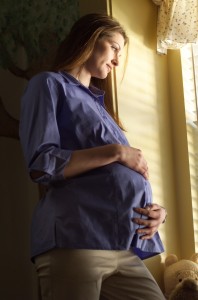Labeled on its cover as “the insider’s guide to cancer in your 20’s and 30’s,” Kairol Rosenthal’s recently published book Everything Changes explores what having cancer is like for young people. Through interviews with 25 young adults aged 20 to 39 with cancer who live across the United States, Rosenthal set out to find material she could use to compile “the antithesis of the cancer memoir.” She wanted the “raw, confessional talk that spills out when one is not conscious of portraying an image on the page,” narratives that could, in her words, “rip young adult cancer patients from the confines of . . . limited descriptors and perceptions.” The book is full of honest accounts, some funny, some heartbreaking, but all work together to achieve Rosenthal’s goal of giving voice to young men and women who do not necessarily want to be perceived in ways we have come to expect in the cancer memoir genre.

Image: www.dsf.health.state.pa.us
Of particular interest to me, being a postdoctoral fellow at the Oncofertility Consortium, were two things. The first were the narratives that spoke about pregnancy and babies. One young woman (Rosenthal used pseudonyms for many of the people she interviewed, and because nearly all told her details they did not want publicly shared, she changed identifying information for nearly all of them) told Rosenthal that visualizing herself as having a baby helped her get through chemotherapy. Another told her of her pain when she “woke up in the recovery room” to have her doctor – who was six months pregnant – tell her that she had to have an unexpected complete hysterectomy. Having her visibly pregnant doctor tell her, she told Rosenthal, was “like adding insult to injury.” Another young woman told Rosenthal that she had a hard time seeing people with babies knowing she was infertile.
The second is that, in addition to the narratives, Rosenthal also provides a list of resources for a variety of topics of interest to young people with cancer, including a section on fertility and adoption. She refers to the Fertility Preservation Patient Navigator at Northwestern Memorial Hospital – the Fert Line – as the “first and only fertility preservation patient navigator in the field” one she hopes will become a “model for cancer institutions worldwide.”
Everything Changes is often irreverent while respectful. But mostly it is timely, a good resource, and reflective of other voices that have recently emerged – like those heard on the website I’m Too Young for This! – from young adults with cancer.
Karol Rosenthal, Everything Changes: The Insider’s Guide to Cancer in Your 20s and 30s (John Wiley and Sons, 2009)

